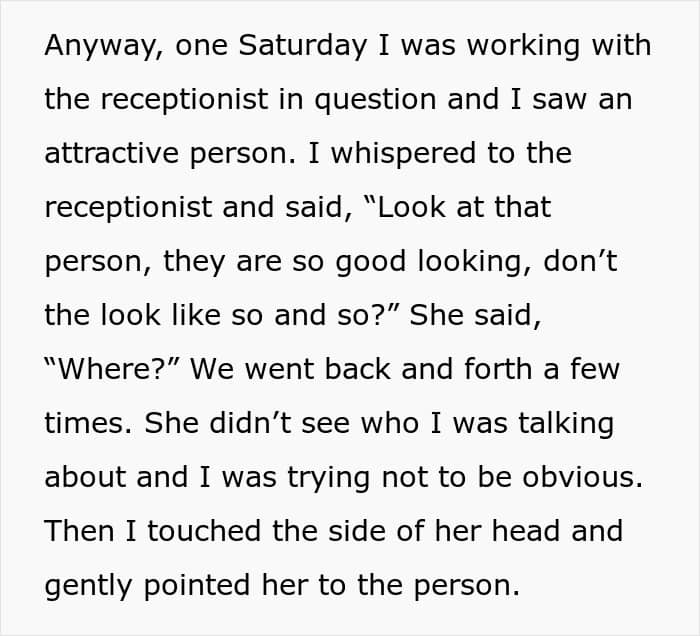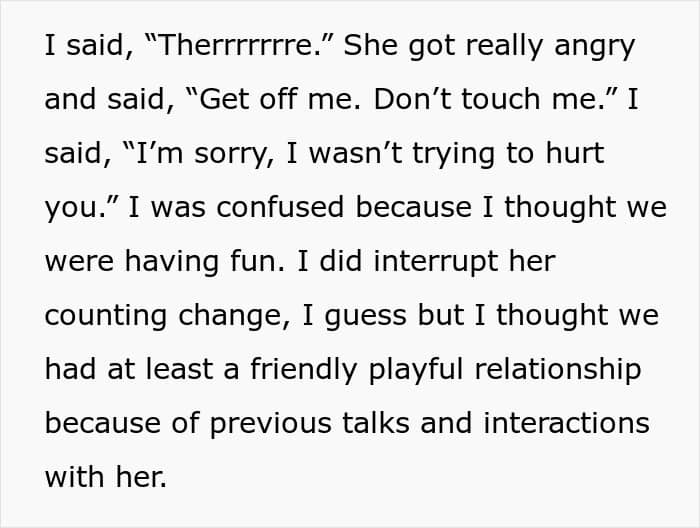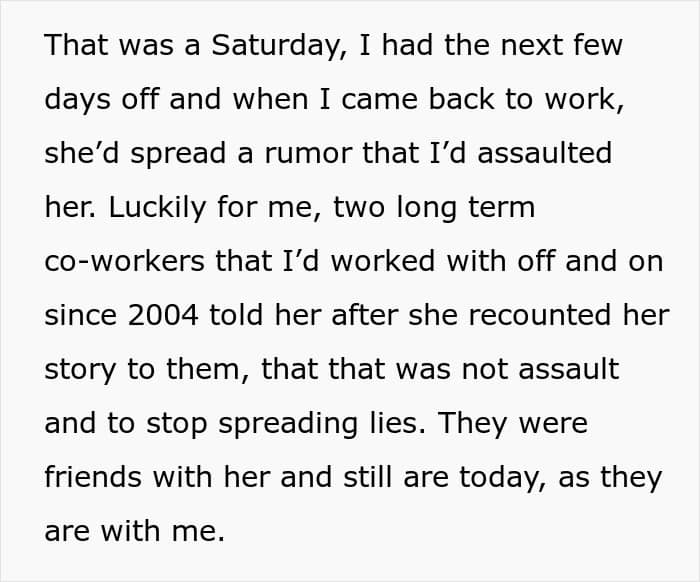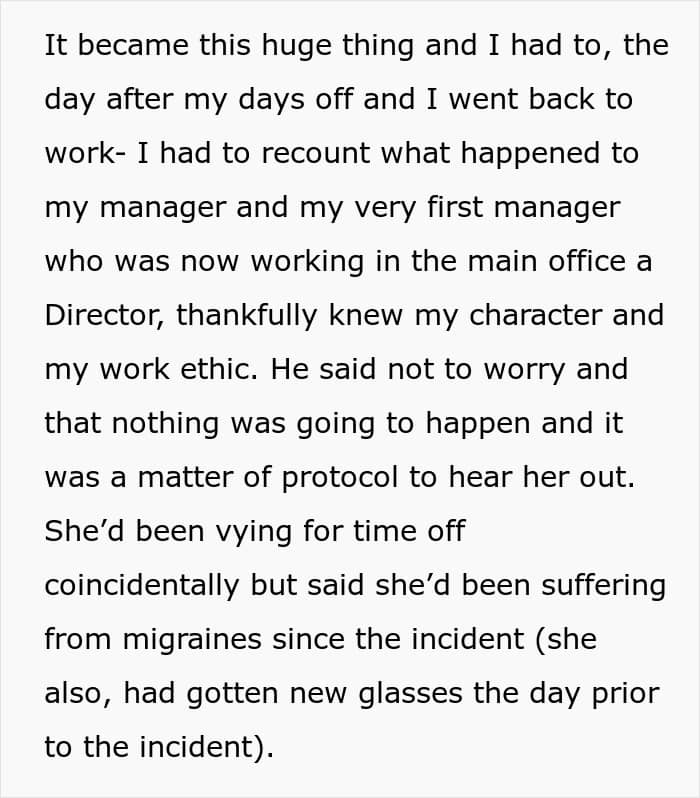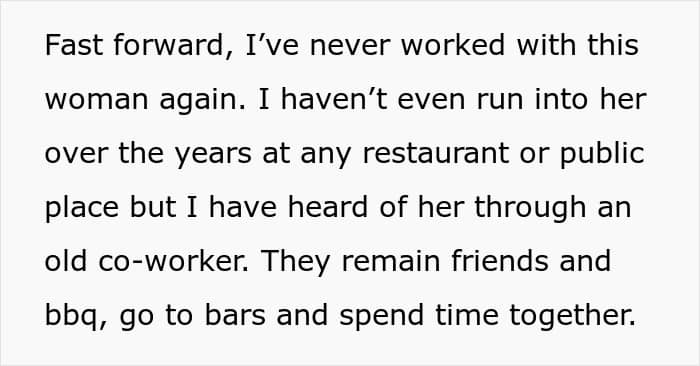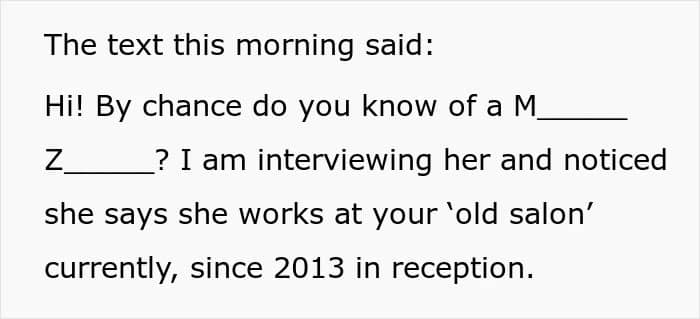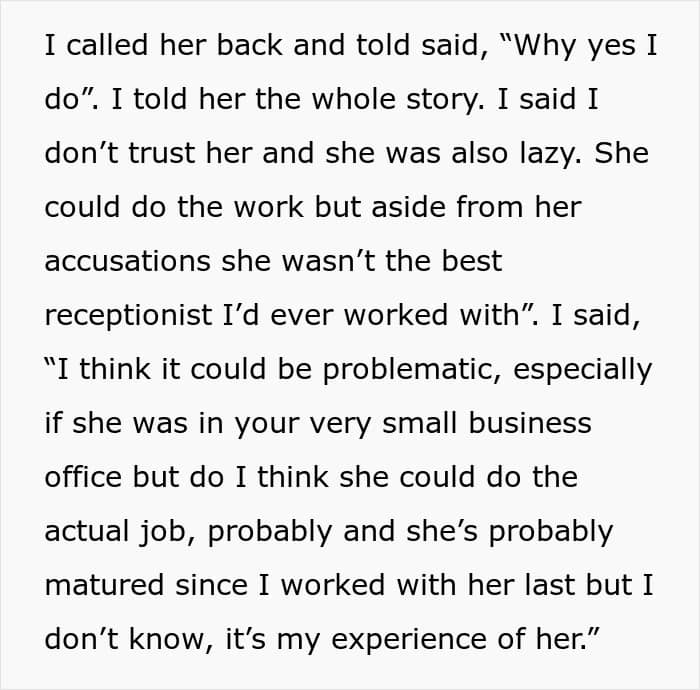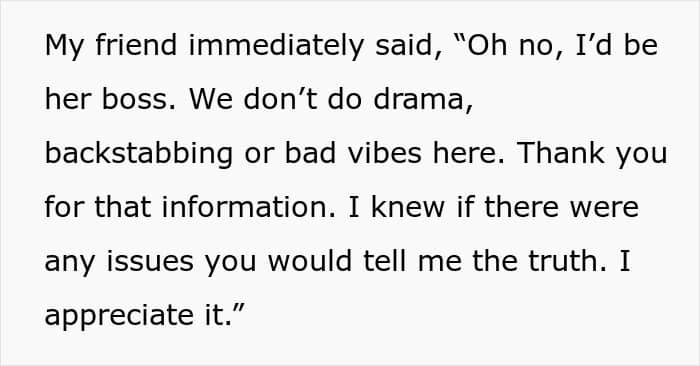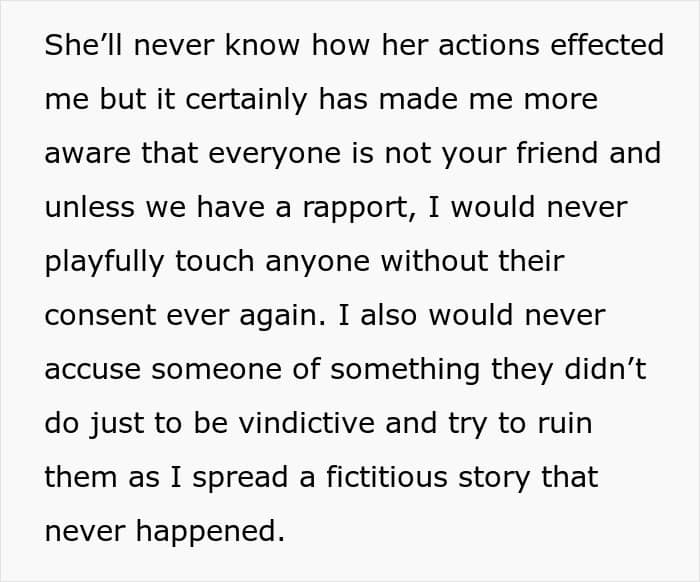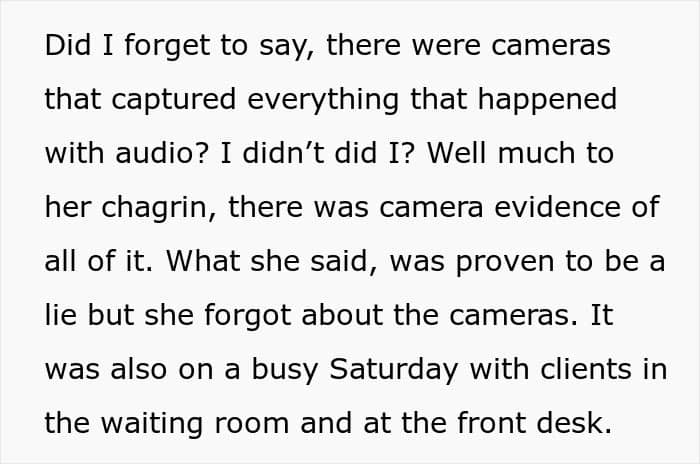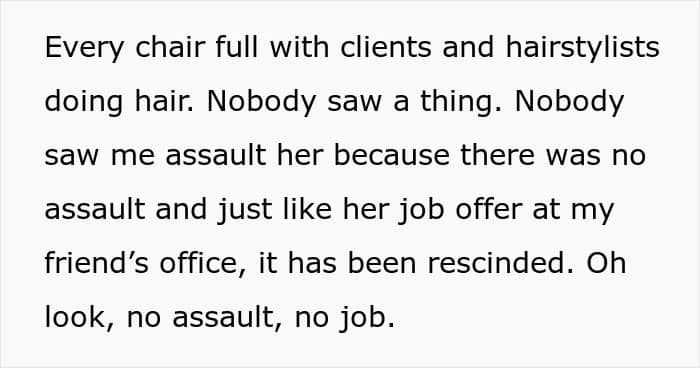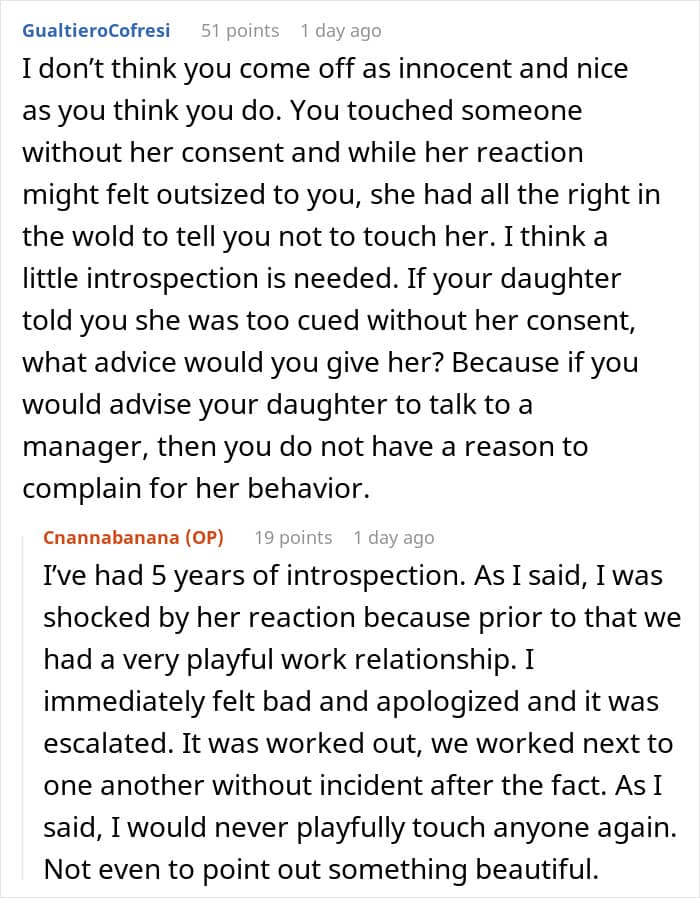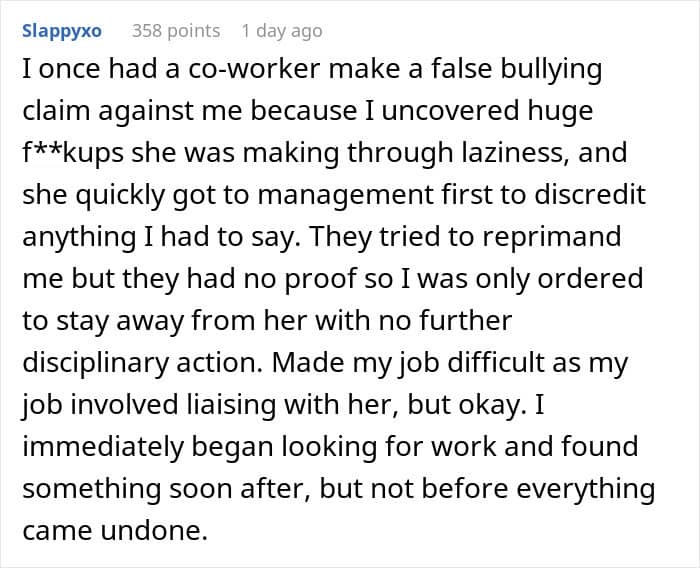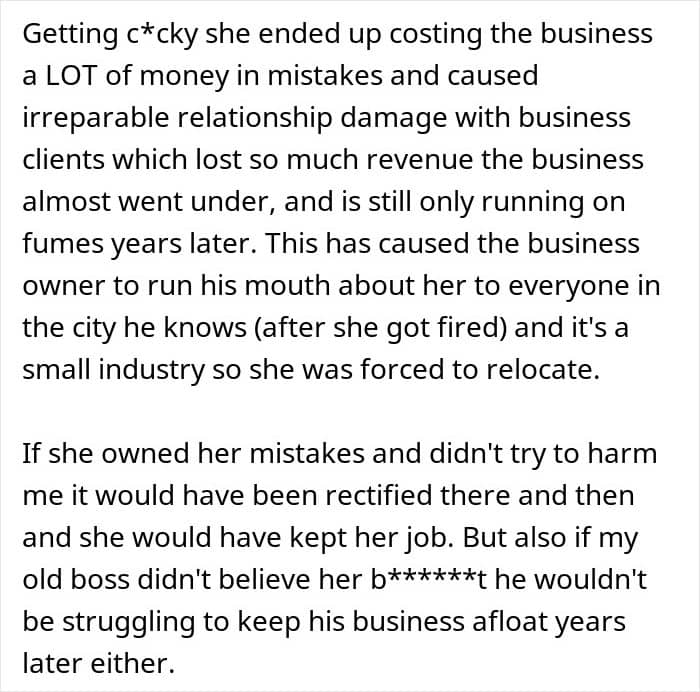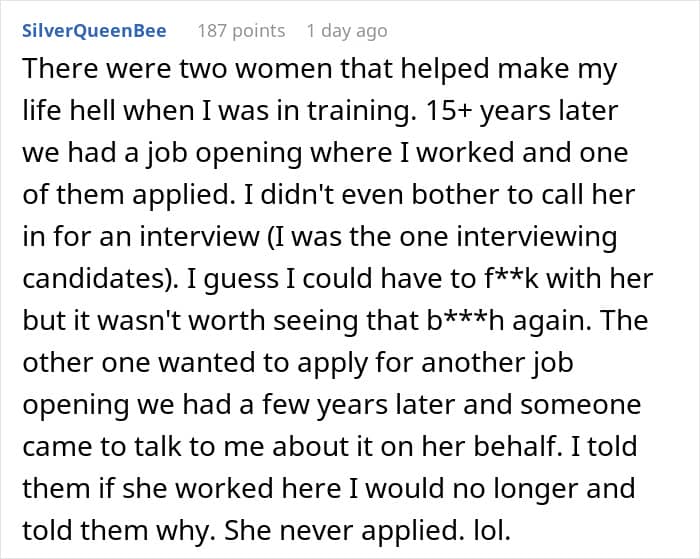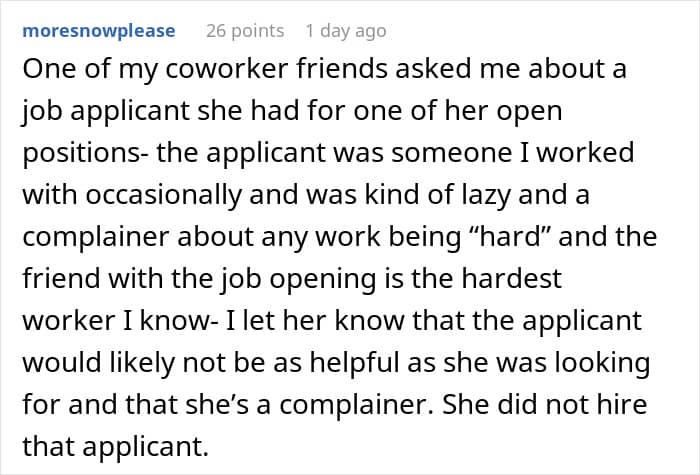False accusations can ruin lives and leave an undeserving person with a bad reputation for a long time. Rumors have a way of persisting and lies hurt. So getting revenge for slander is very understandable, though some people perhaps don’t approach it with proportionality. But this is not such a story.
A woman shared the time she was falsely accused of assault by a coworker. She was not directly punished as video evidence exonerated her but the psychological discomfort was still present. Years later, by happenstance, she ran into a chance to get some petty revenge and she seized it.
RELATED: False accusations are dangerous and difficult
Image credits: setofotografias (not the actual photo)
A woman was incorrectly implicated in assault and found a way to get back at her accuser years later
Image credits: Farknot (not the actual photo)
Image credits: StudioVK (not the actual photo)
Image credits: StudioVK (not the actual photo)
Image credits: Cnannabanana
Society tries to presume innocence for a good reason
OP was fortunate enough to have evidence, both material and her reputation, to beat the allegations. The concern for false accusations goes back centuries. Roman law put the burden of proof on the accuser out of which we have the civil law concept of innocence until proven guilty. This is also called the presumption of innocence if one wants to get extra technical. This concept can also be found in Talmudical law and Islamic law. The result is that this concept is baked into a lot of our thinking and for good reason. OP’s story demonstrated the risks, where her career and social life could have been in jeopardy because someone wanted a leg up.
Indeed, more modern thinkers have codified and expanded on this idea. English jurist William Blackstone wrote that “It is better that ten guilty persons escape than that one innocent suffer.” Fear of punishment can cause an innocent person to do something irrational and society can quickly lose all of its trust in legal institutions if they are seen to punish people who do not deserve it. Hence, if one is innocent, they in theory should have no fear of submitting to the authorities, who need to prove, beyond a reasonable doubt, that they are guilty. It also means that people can’t just abuse accusations to destroy reputations and gain from lies.
Image credits: Liza Summer (not the actual photo)
Resentment can have a lot of adverse effects on a person’s psychology
As far as hurtful rumors go, OP got out relatively cleanly. She still maintained her career and didn’t end up ostracized. But just the act of false accusations did end up lingering with her if she took an opportunity to get revenge later. Truthfully, OP only spoke her mind to someone who legally asked her. She didn’t go out of her way to hunt down this woman or did anything else beyond describing her literal experience. Telling an honest opinion isn’t even petty, but we lack the vocabulary to describe a smaller tier of revenge.
Hopefully, this experience helped OP deal with any lingering resentment she may have had. It’s not a pleasant or pretty emotion, but one we often have to work through, particularly when it’s the result of being victimized. Carrying these emotions with oneself over a long period of time can be psychologically difficult, causing anger, stress, and self-hatred if left unchecked. In extreme cases, anger, resentment, and spite can result in self-harm.
Fortunately, OP not taking any specific actions over the five years shows she has good coping mechanisms and doesn’t allow this event to be defining for herself. This is important because lingering on revenge or ideas of revenge in extreme situations can cause symptoms resembling post-traumatic stress disorder.
Image credits: David Garrison (not the actual photo)
Readers enjoyed the tale of earned revenge and OP gave some more details
Others shared similar stories and commented on OP’s experience



